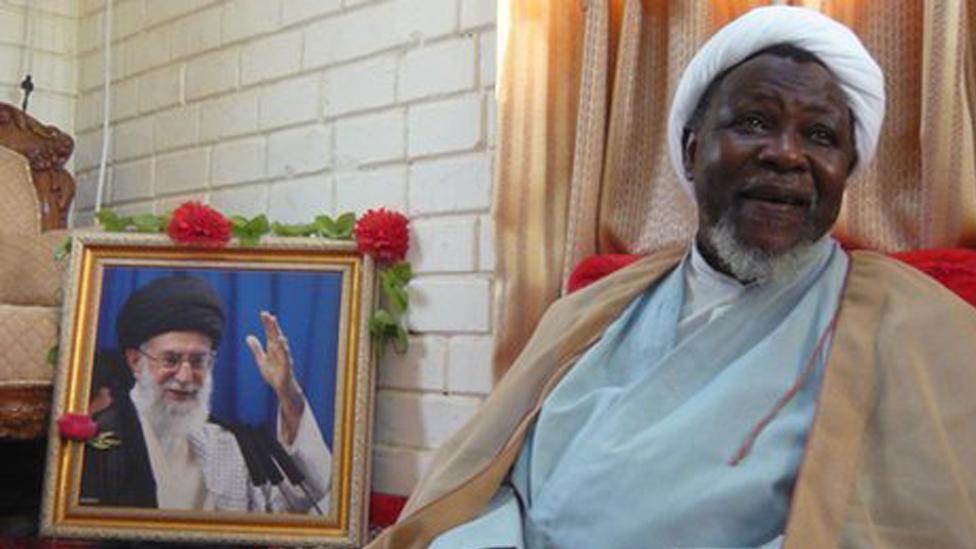IMN's Ibraheem Zakzaky: Detained Nigeria Shia leader to seek treatment in India
- Published
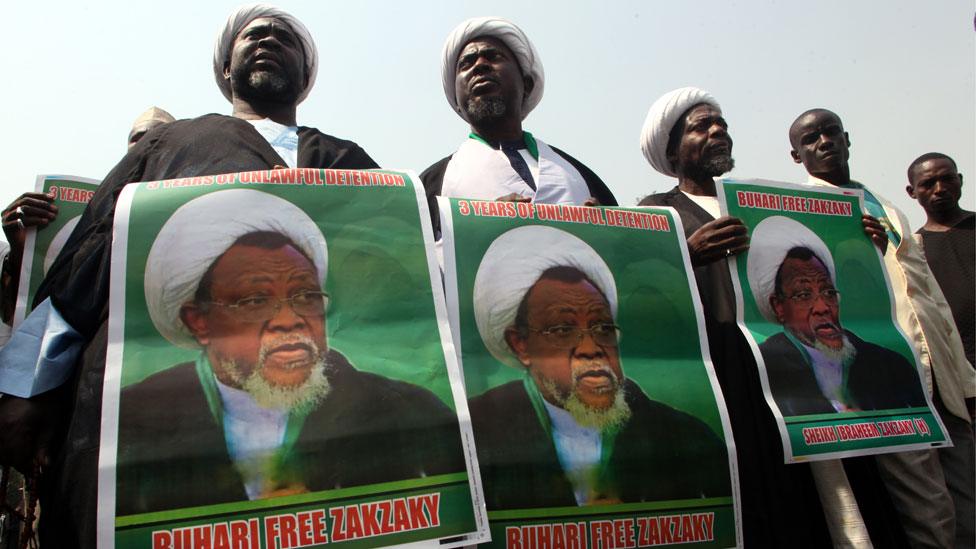
Members of the Islamic Movement in Nigeria take part in a demonstration against the detention of their leader Ibraheem Zakzaky in Abuja
A Nigerian court has allowed the leader of a banned pro-Iranian Shia Muslim group to seek medical leave in India after more than three years in custody.
Supporters of Ibrahim Zakzaky have been protesting on the streets of the capital, Abuja, for months calling for his release.
Sheikh Zakzaky, 66, has been charged with culpable homicide and other offences, all of which he denies.
His supporters say he has suffered two minor strokes and is losing his sight.
The court also ordered a delegation to accompany Sheikh Zakzaky to India to ensure he returns for trial after getting treatment.
The Islamic Movement in Nigeria (IMN), which was founded four decades ago by Sheikh Zakzaky, welcomed the court's decision as "a victory for truth and justice against tyranny and impunity".
It accused the Nigerian authorities of inflicting "brutal wounds" on Sheikh Zakzaky and his wife Malama Zeenat Ibrahim, who have been in police custody since 2015.
Why was the IMN banned?
The group was banned in July after months of protests which saw violent clashes between protesters and the security forces - including one outside the federal parliament building. Several people have been killed in the protests, including a senior police officer and a journalist.
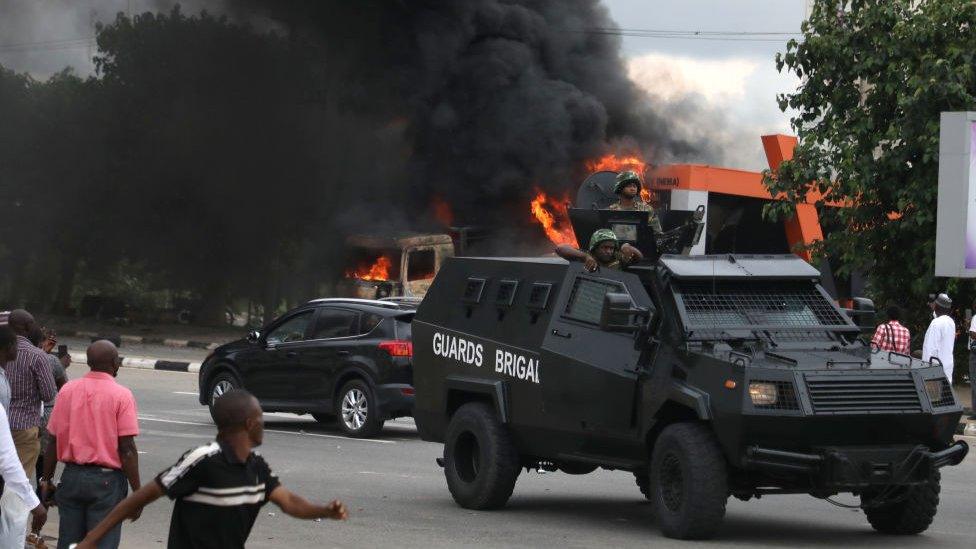
Several people have been killed during recent protests by the IMN
Nigerian President Muhammadu Buhari said the group had been "taken over by extremists who didn't believe in peaceful protests and instead employed violence".
Human rights groups have condemned the police's violent response to the protests.
Sheikh Zakzaky was among hundreds of people arrested in 2015 after security forces stormed the group's headquarters and killed about 350 people.
The army said at the time that it was protecting its chief of staff and his convoy who it says were attacked by IMN supporters.
Who is Sheikh Zakzaky?
Born in 1953 in Kaduna State, northern Nigeria, Sheikh Zakzaky founded IMN in his youth and is largely credited for the growth of Shiaism in Nigeria.
The country's Shia Muslim community was virtually non-existent 30 years ago but is now estimated to be somewhere between 5% to 17% of Nigeria's 100 million people.
Sheikh Zakzaky converted to Shiaism about four decades ago after visiting Iran. He was heavily influenced by the Iranian revolution in 1979 which saw Ayatollah Khomeini take power from the US-backed Shah.
The Iranian revolution encouraged him to believe that an Islamic revival was also possible in Nigeria.
Sheikh Zakzaky was a political prisoner for nine years during the 1980s and 1990s, accused by successive military regimes of civil disobedience.
Why is the group controversial?
IMN supporters do not recognise the Nigerian government and see Sheikh Zakzaky as the only legitimate source of authority in the country.
They pledge allegiance to Ayatollah Khomeini at their gatherings and critics have raised concern over the group's close ties to Iran.
Sheikh Zakzaky has denied his movement, which runs hospitals and schools in some states in northern Nigeria, gets any funding from Iran.
The Nigerian government says IMN is a violent group that has attacked law enforcement agencies, including the army, on multiple occasions in the last few years.
The IMN denies allegations of violence and accuses the security forces of over-reacting to peaceful protests.
In a statement released on Monday, the group accused the government of "deliberate and persistent provocations".
- Published5 August 2019
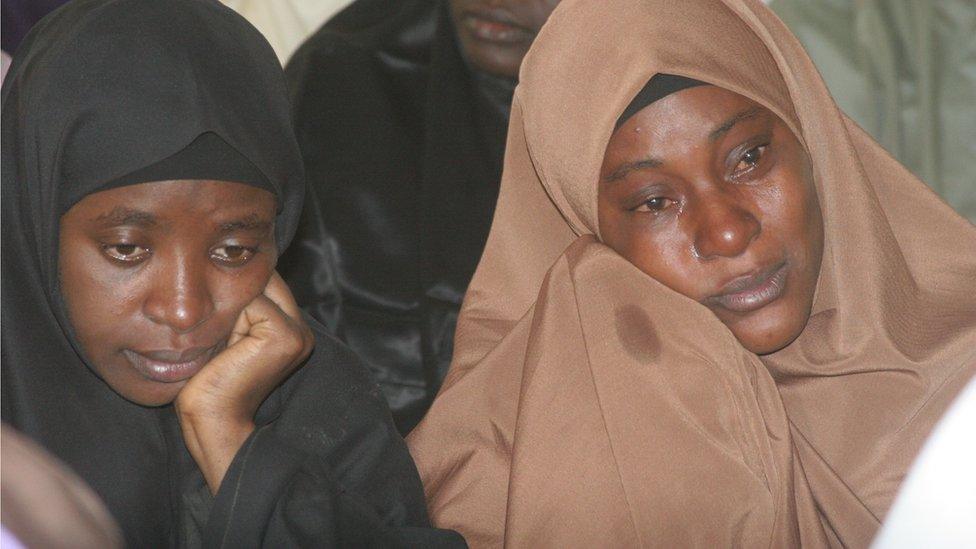
- Published8 May 2012
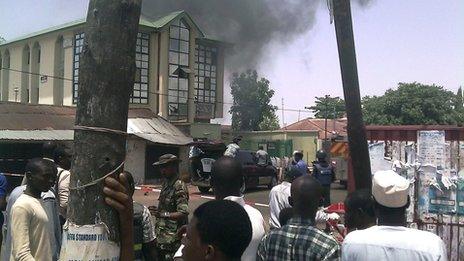
- Published23 December 2015
